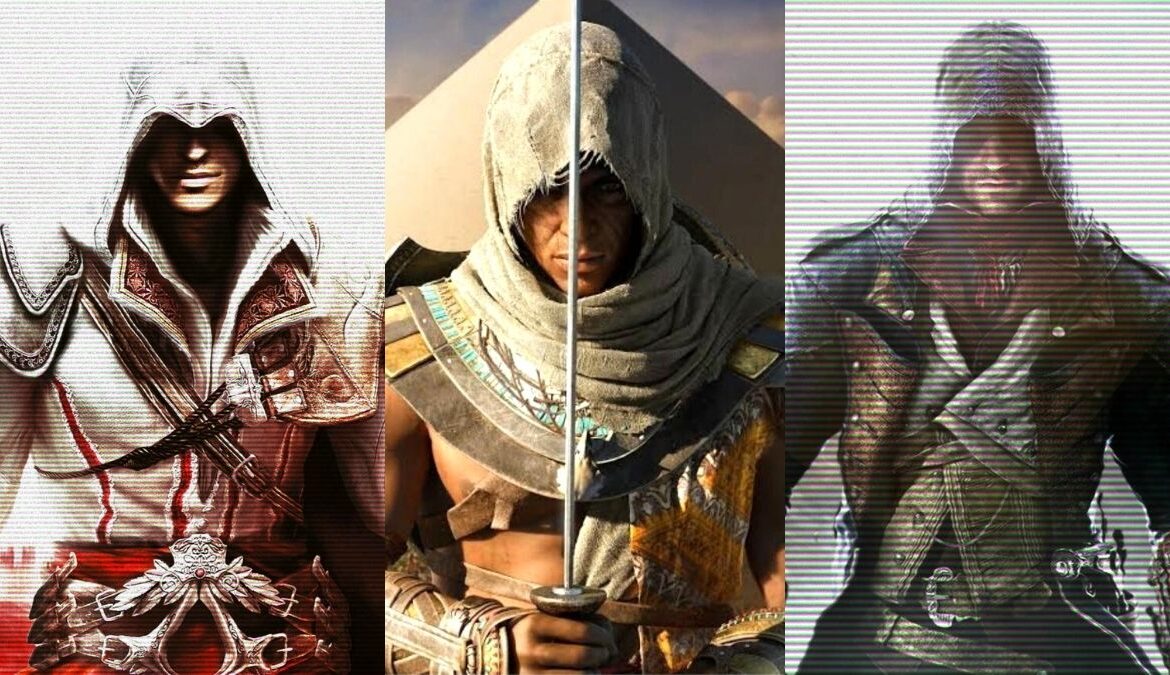There’s no stopping the Assassin’s Creed juggernaut. What started out as the spiritual successor to the Prince of Persia IP has grown and mutated to spawn sequels, spin-offs and tie-ins, many of which are now only tangentially related to the original title from 2007. In fact, the ‘Assassin’ aspect of ‘Assassin’s Creed’ has become something of an albatross around Ubisoft’s neck as each subsequent release struggles to come up with a tangential reason for its connection to the order of professional killers who operated predominantly during the Crusades.
Still, the vast number of games in the AC catalog means that there’s no shortage of historical eras and locations from which to choose, from the glinting seas of the 18th Century Caribbean to the mythical glory of Ptolemaic Egypt. Such diversity means that it’s often personal preference that dictates which game can be considered the summit of the series, but that hasn’t stopped us trying to rank each and Assassin’s Creed game from worst to best.
Assassin’s Creed Ranked
26. Assassin’s Creed: Pirates
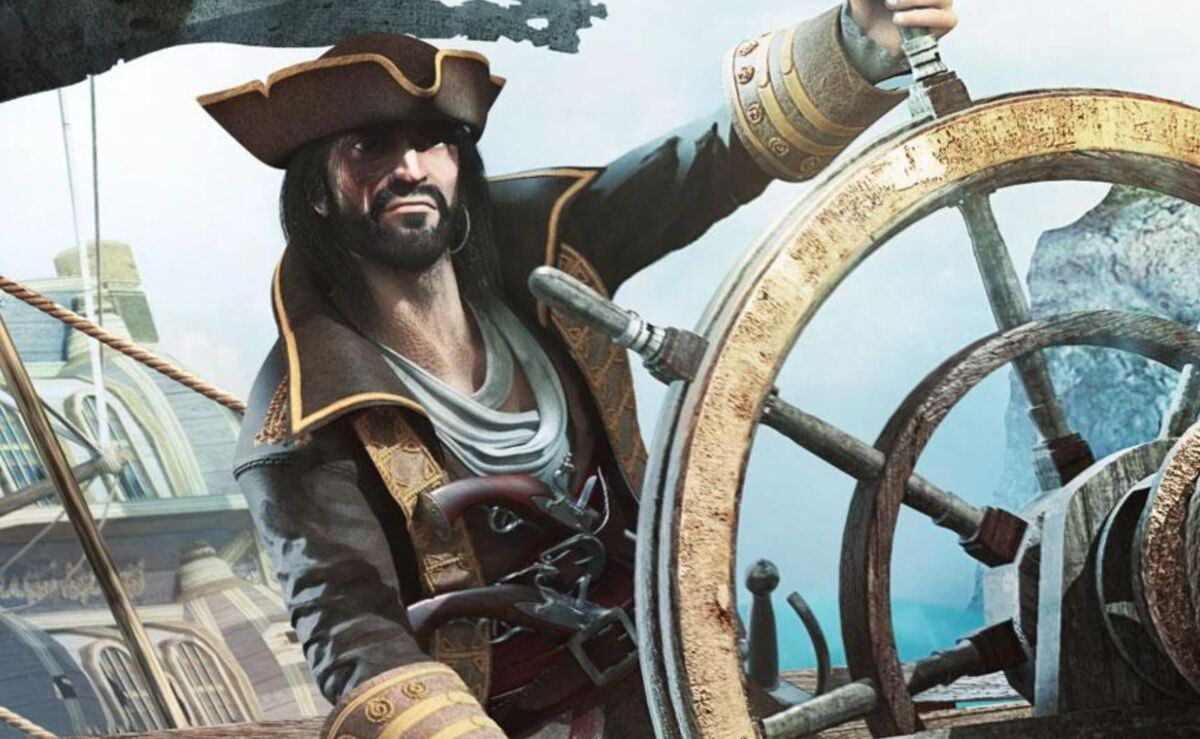
Platform(s): iOS, Android
Easily one of the most basic and bland titles ever to bear the AC label, Pirates is essentially a mobile minigame based purely on the sailing mechanics of Assassin’s Creed: Black Flag.
Pirates isn’t a disgrace, however, and its convincing visuals and arcade-style ship combat combine pretty nicely to give a decent impression of one of the series’ proper mainline releases. There’s even a proper story to go with it all, albeit a pretty flimsy one, as you embark on a quest for treasure and glory from the convenience of your smartphone.
Still, flimsy remains the operative word, and it’s hard to ignore the fact that Pirates is little more than a mobile spin-off designed to be a diverting distraction rather than a full-length feast. On the Assassin’s Creed depth chart, Pirates is more of a dried-out rockpool than a vast, bottomless ocean.
25. Assassin’s Creed Memories
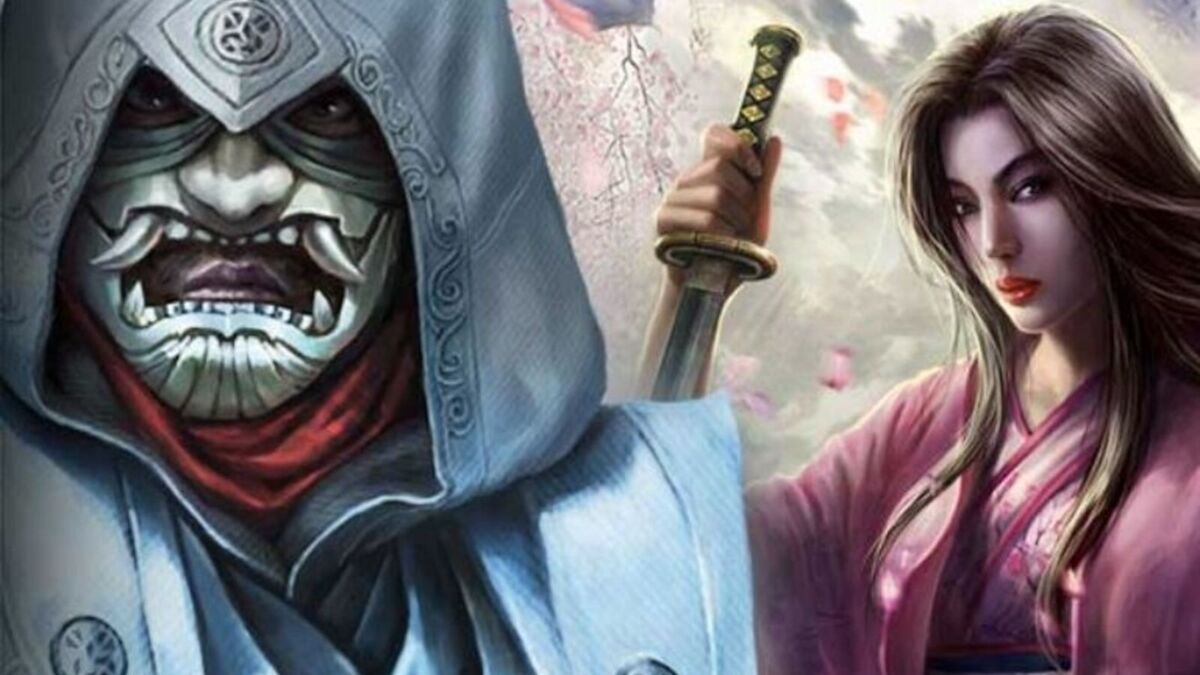
Platform: iOS
Ranking every Assassin’s Creed does mean ranking every Assassin’s Creed, and that includes role-playing trading card games developed exclusively for the iOS. Yes, Assassin’s Creed: Memories did exist, although only the most observant franchise fans or trading card game enthusiasts would have noticed the game’s brief, fleeting existence.
Released in 2014 and then not updated until the following year, Memories’ servers shut in 2015 following a brief statement from its developers, meaning that players will just have to make do with the other instalments on this list to get their Assassin’s Creed kicks. Good news for AAA fans, bad news for those who like assassinations with a little more trading card action. A niche subset, then.
24. Assassin’s Creed Unity: Arno’s Chronicles

Platform(s): Huawei Honor 9/7s/7A/8x
Unity: Arno’s Chronicles is pretty much the definition of a blink-and-you’ll-miss-it release.
Debuting in the summer of 2017 after Unity’s decidedly disastrous launch, Arno’s Chronicles was hitching its wagon to an already troubled horse. Like most mobile games of its type, Arno’s Chronicles consists of a side-scrolling adventure wherein Arno performs the usual assassin tricks of climbing, rolling, diving and slashing from left to right without the annoying distraction of a third dimension.
In fact, as far as gameplay goes, Arno’s Chronicles does indeed take visual and mechanical inspiration from the Chronicles trilogy that debuted in 2015. It’s a functional, bland affair, the sort of game that only exists in the memory for all long as a person is actually engaged in playing it. Of all the Assassin’s Creeds ever made, Arno’s Chronicles must take the cake as being the most obscure.
23. Assassin’s Creed Rebellion
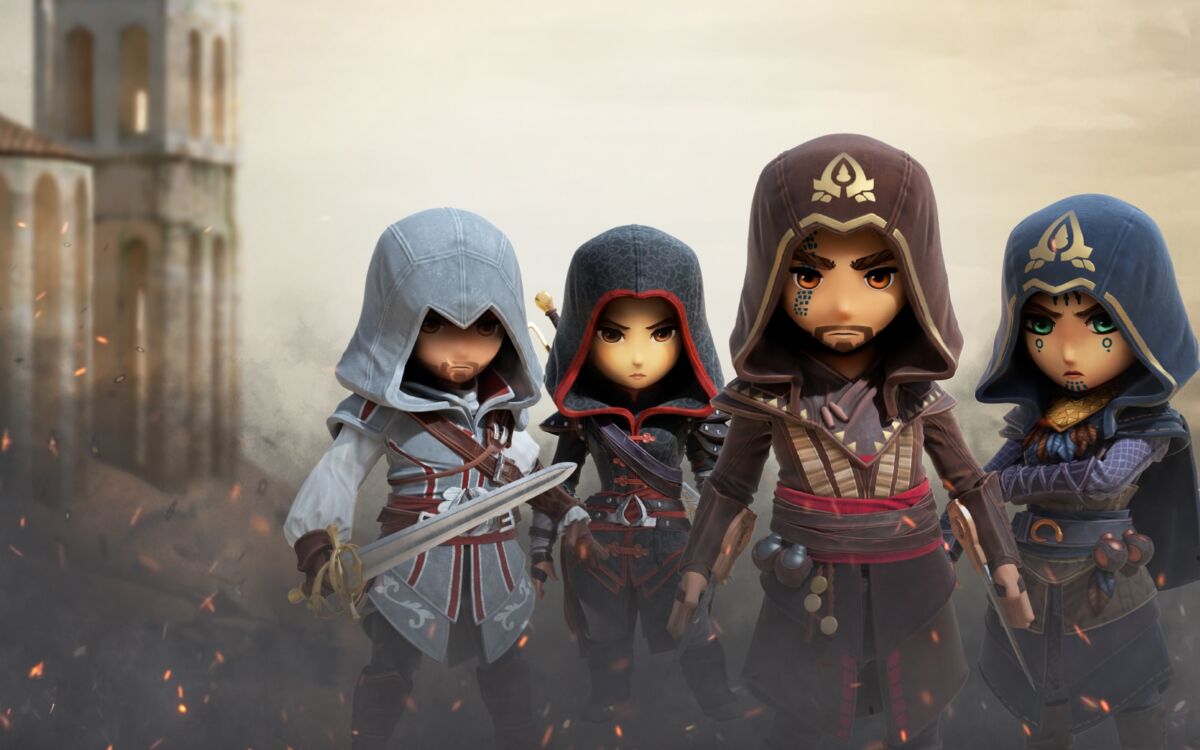
Platform(s): Android
Assassin’s Creed has been relaunched and reimagined in some bizarre ways, and few are stranger than Rebellion.
An odd outlier that took the grounded idea of historically-inspired cloak and dagger espionage and reduced it to a cartoonish piece of mobile fluff, Rebellion was like watching a group of psychopathic bobbleheads let loose on the set of Stardew Valley. As far as clashing stylistic visions go, Rebellion is as peculiar as, say, an Assassin’s Creed-based role-playing trading card game for the iOS.
Rebellion has been pretty well received since its official 2018 launch, the cutesy dome-headed reimagining focusing on the Spanish Brotherhood of Assassins, most notably Aguilar de Nerha of Michael Fassbender fame, during their fight against the Spanish Inquisition. With Aguilar joined by the familiar faces of Shao Jun (Chronicles: China) and Ezio himself, Rebellion has just enough fan service to keep die-hard fans happy. For a little while, anyway.
22. Assassin’s Creed Rearmed

Platform(s): iOS
Looking back at the entire Assassin’s Creed catalogue makes you realise how many mobile spin-offs Ubisoft actually released.
Recognising that anything bearing moody men in hoods and flashing a bit of hidden steel was more than enough to shift copies regardless of the format, platform or quality, the French studio ended up pumping out a fair few mobile tie-ins in the gaps between mainline events, often delegating production to smaller Ubisoft arms or else outsourcing them entirely to other developers.
Described as AC II: Multiplayer’s spiritual successor, Rearmed is essentially a 2D touch multiplayer game wherein up to four players compete against one another, moving around the map and trying to take out targets. It’s a peculiar experience, the top-down view of various hooded figures shuffling around putting one in mind of a drone let loose at the local monastery, and it never caught on in a meaningful way.
21. Assassin’s Creed Chronicles: Russia
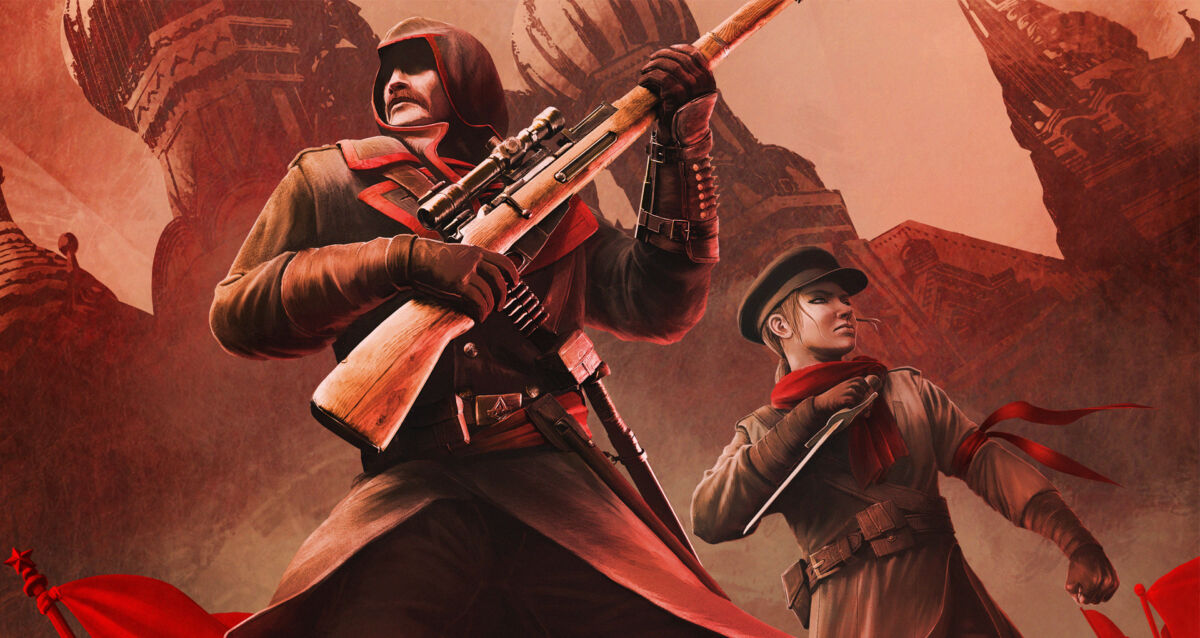
Platform(s): PC, PS4, Xbox One, Vita
By far and away the worst-received title in the Chronicles canon, Russia has always felt like an experimental title that suffered as a result of its ambition.
Setting proceedings in 20th Century Soviet Russia certainly helped the game stand out as unique, its setting about as modern as the historical series ever got, and there’s no doubt that the tension and turmoil of the nascent Bolshevik state make for a compelling backdrop to the usual stealthing, climbing and detection-avoiding.
Russia’s problem, however, was that it was simply too difficult, often punishingly so, to be as enjoyable as the other Chronicles titles, aggressively penalising players at a cost to the game’s sense of lightweight enjoyment. Ending up as repeatedly frustrating and frustratingly repetitive, Russia is the Chronicles entry discerning players can afford to skip.
20. Assassin’s Creed: Bloodlines
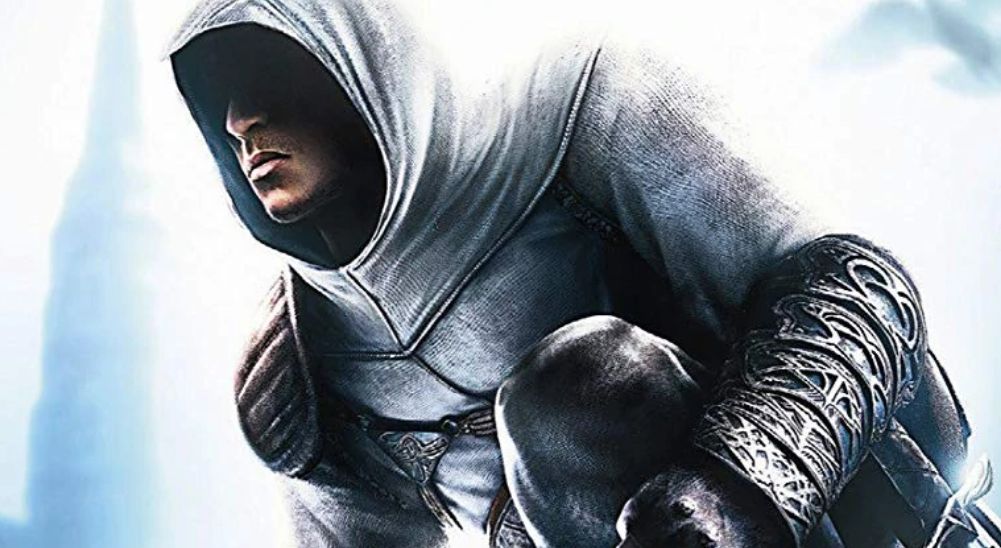
Platform(s): PSP
The PSP was a colossal success when it became the must-have console kids couldn’t wait to get their hands on in the late 2000s, but now Sony’s handheld has become a relic confined to the pages of history. Lots of studios happily put out popular versions of their big-name IPs onto Sony’s nifty handheld, big-hitting series such as FIFA, Uncharted and God of War all finding some success on a smaller, more portable platform.
Such success wasn’t quite replicated by Bloodlines. The game’s main issue was that it ended up as more of a showcase for what the PSP could do and rather forgot to be a decent AC game in its own right. While it might have looked decent and boasted impressive sound and visual design, critics were quick to point out that Bloodlines was paper-thin and added nothing to the legacy of the game upon which it was based.
19. Assassin’s Creed Chronicles: India
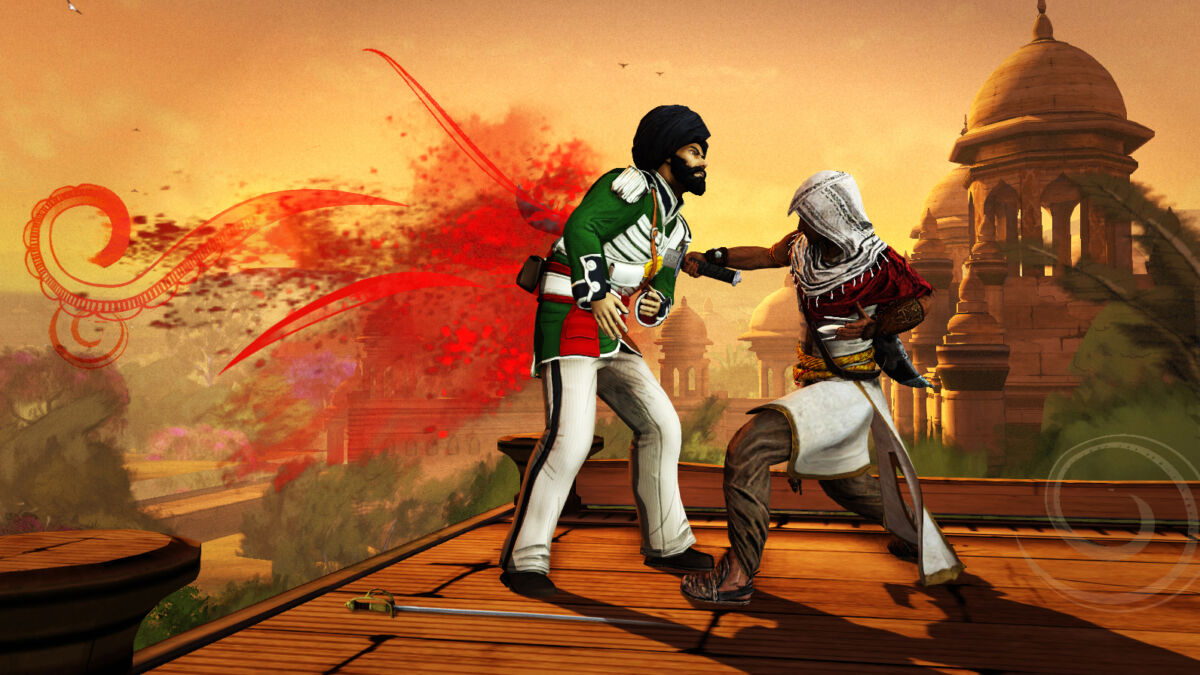
Platform(s): PC, PS4, Xbox One, Vita
For such a vast subcontinent, India and South-East Asia had always been largely underutilised by the relatively Euro-centric AC brand. It’s a shame, because there’s still an exotic charm about the slightly alien (to Western eyes) spires and domes of the Sikh Empire that give Chronicles: India a completely unique flavour. Having the game set in 19th Century British India lends proceedings a little more bite, meanwhile, and there are some nods and nice tie-ins to other games in the series.
There was always a sense, however, that India never quite lived up to its potential, many contemporary critics finding it blander and less engaging than Shao Jun’s Chinese Odyssey. India’s setting is certainly equally exotic but is never quite as evocative as that of Imperial China, while the game also received criticism for failing to differentiate itself from its Oriental counterpart.
Assassin’s Creed Chronicles: India is perfectly acceptable stuff, but little more than that.
18. Assassin’s Creed: Altaïr’s Chronicles

Platform(s): DS, iOS, Android
The first game to take advantage of the relative success of the original Assassin’s Creed, Altaïr’s Chronicles was a 2008 release for the DS, Android and iOS (plus a host of other obscure mobile operating systems) that looked to give its protagonist a little more to do. In it, Altaïr is hunting down the Chalice, an artefact with the power to end the Crusades and ensure peace in the Holy Land.
It may all sound very familiar now, but Altaïr’s Chronicles was a perfectly acceptable title when it debuted nearly fifteen years ago. Yes, the interface, controls and animations make the PS1 seem like the cutting edge, but Altaïr’s Chronicles is a pretty breezy diversion that does ok with the resources at its disposal. A fine entry, albeit an utterly non-essential one.
17. Assassin’s Creed Chronicles: China
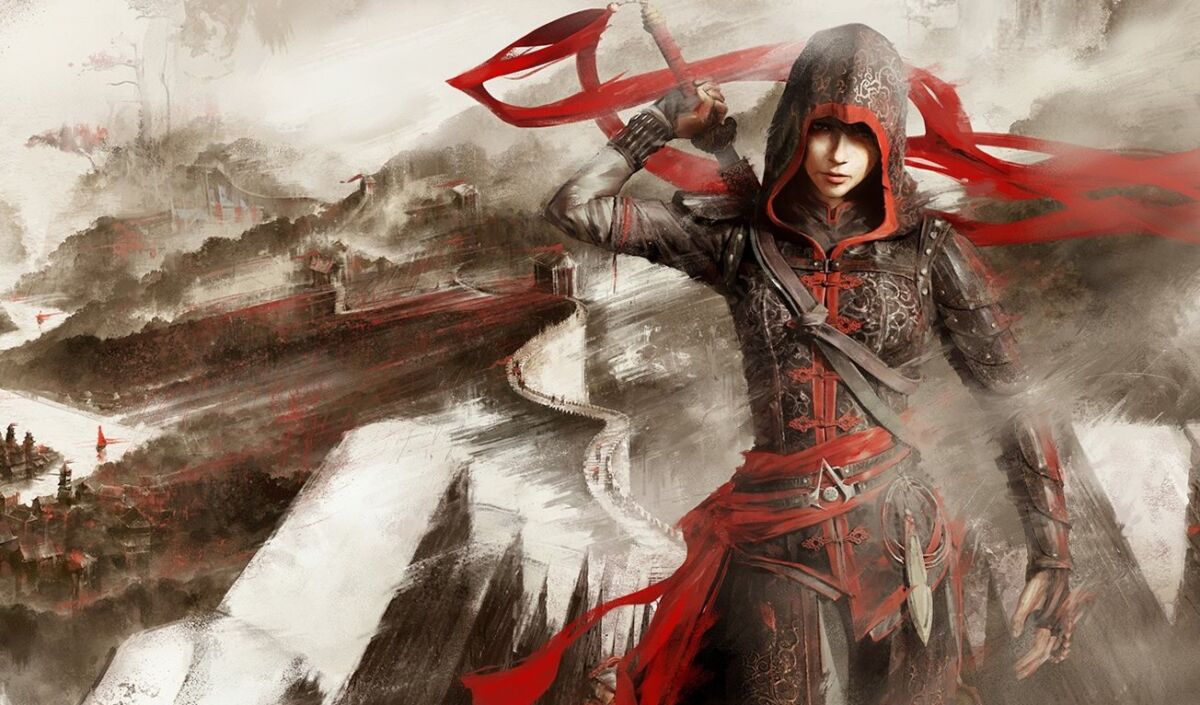
Platform(s): PC, PS4, Xbox One, Vita
The first entry in the Chronicles series is also by far the best.
Set in 16th Century Imperial China during the Ming Dynasty, Chronicles: China charts the tale of Shao Jun as she returns to her homeland after her tutelage under Ezio himself and looks to rid the nation of the Eight Tigers, a group of (you guessed it) Templars pulling the strings from behind the scenes. In this sense, Chronicles: China is narratively akin to the first-ever AC, giving players a simple, linear series of tasks to be checked off one by one.
Uncluttered and focused, China makes the most of its format to the best effect of the Chronicles trilogy, bringing the focus back to stealth via its series of challenging mini-stages. With fluid freerunning and an engaging historical backdrop, China is certainly the place to start for Chronicles novices.
16. Assassin’s Creed Identity
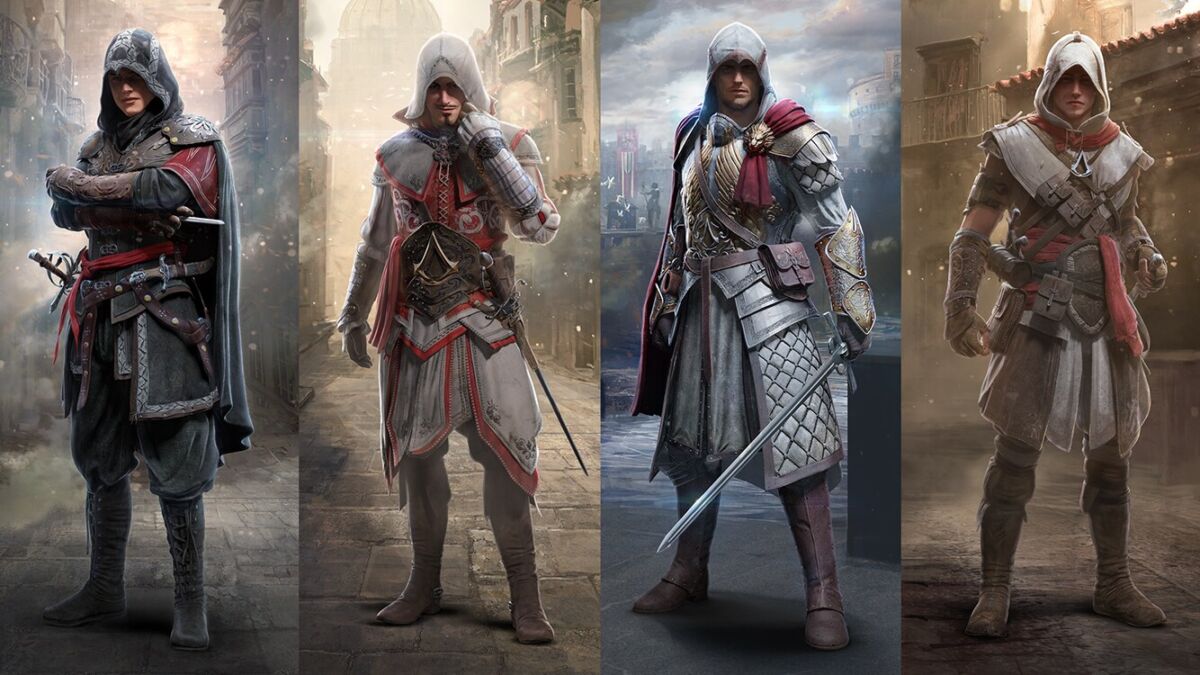
Platform(s): iOS, Android
Most casual gamers probably haven’t heard of Blue Byte, the little-known German developer and holding company owned by Ubisoft’s parent studios, but it was they who were responsible for developing a new iOS and Android Assassin’s Creed release back in 2016.
It’s the usual drill, more Italian Renaissance, more incestuous Borgias, more Assassins squaring off against Templars and running over enough rooftops to keep Florence’s tile-making industry afloat for the next few centuries.
Identity is a solid spin-off, a 6/10 sort of a game that doesn’t break many molds but is also decidedly void of any game-breaking design flaws that are often the bane of mobile and touchscreen titles. Identity keeps things relatively simple (even if the controls are a little tricky), but for something to play on the Tube or while sitting in a doctor’s waiting room, it will do just fine.
15. Assassin’s Creed II: Discovery
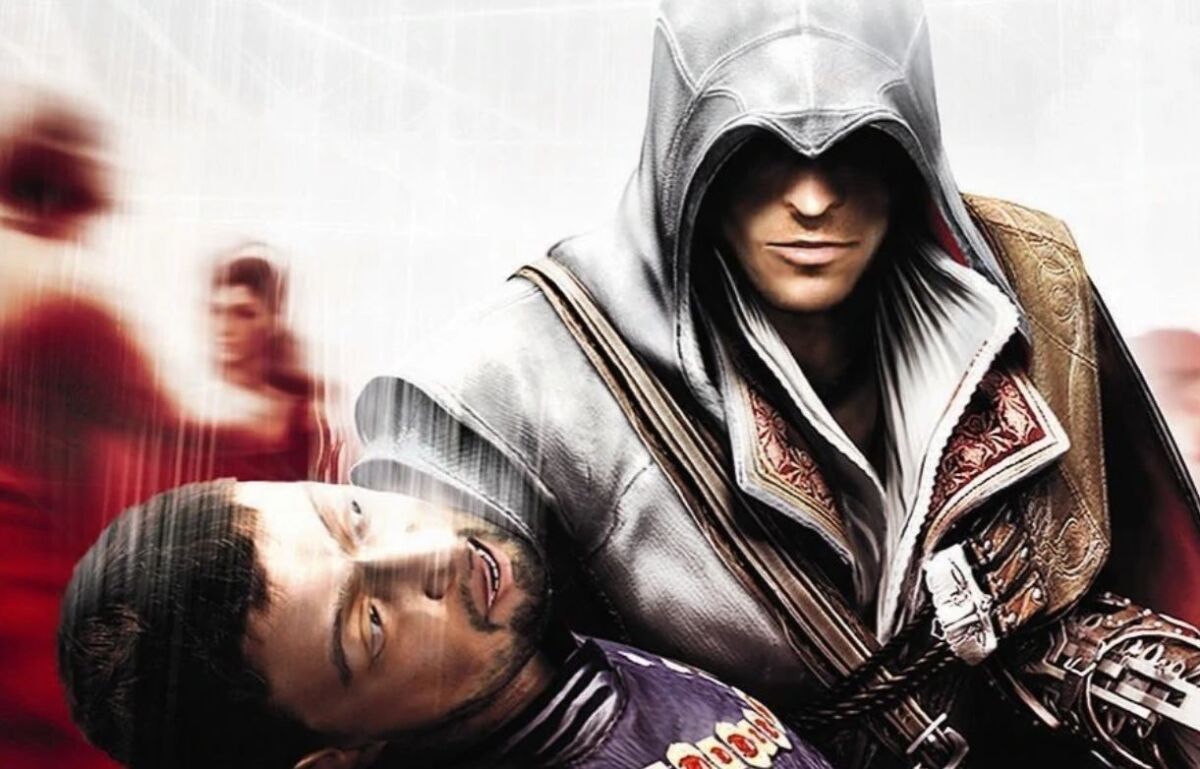
Platform(s): DS, iOS
One of the best non-mainline Assassin’s Creeds is a Nintendo DS game. Funny old world.
Released as a spin-off to the popular AC:II IP on both the DS and Apple’s iOS, Discovery was a basic but surprisingly well made side-scrolling adventure that once more put players into Ezio’s shoes as he once again looks to undermine the efforts of the Templar Order by once again running and climbing and stabbing people from underneath haystacks.
As Assassin’s Creed experiences go, Discovery holds up well, even at a time when you can practically recreate older AAA titles on your iPhone with minimal drops in fidelity. Discovery still looks like a game made for a console that your grandmother probably kept herself occupied with during the Blitz, but it’s charming and competent and captures the spirit of the original adequately, even if seeing Ezio’s side-scrolling duck and roll across rooftops does feel like Sonic the Hedgehog cosplaying as Obi-Wan Kenobi.
14. Assassin’s Creed III: Liberation
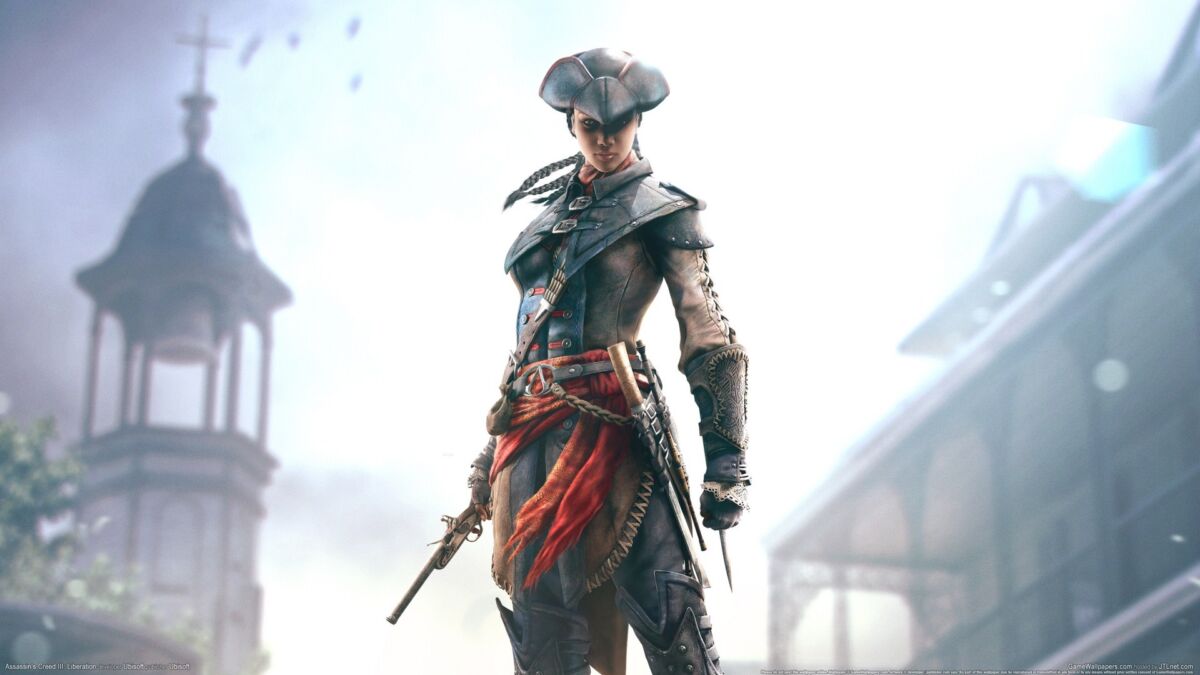
Platform(s): PC, PS4, PS3, Xbox One, Xbox 360, Switch, Vita
AC spin-offs up until Liberation had been small, usually mobile affairs that took some of the key franchise ingredients and transferred them to a more basic format via more primitive means. AC III: Liberation, however, was one of Ubisoft’s first efforts to make a spin-off that could be played on the same platforms as its mainline parent, allowing the French studios to explore new narrative avenues and historical settings without sacrificing much in terms of quality.
Set after the events of the slightly underwhelming AC III, Liberation follows the French Assassins Aveline de Grandpre as she takes on the Templars in the struggle for New Orleans at the end of the French and Indian War.
While neither the game’s story nor its mechanics were particularly revolutionary, Liberation did pave the way for the series’ first black protagonist, as well as showcasing the first woman to helm her own title. Aveline is a likeable and strong protagonist, although she has been somewhat eclipsed by the popularity of figures such as Kassandra from AC: Odyssey, she remains the original AC trailblazer.
13. Assassin’s Creed Freedom Cry
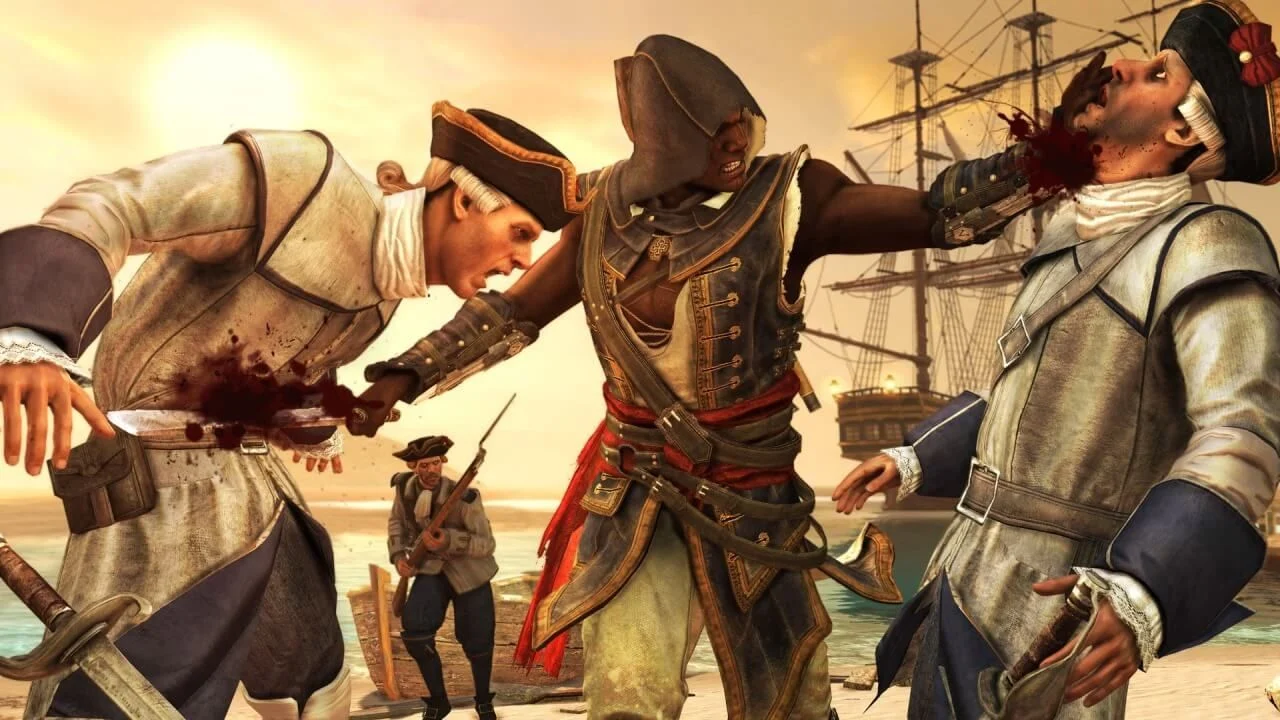
Platform(s): PC, PS4, PS3, Xbox One, Xbox 360, Switch
Adéwalé was a likeable stalwart when he first appeared in 2013’s Assassin’s Creed: Black Flag, but it was a notable and welcome surprise when Ubisoft decided to give the former Trinidadian slave his own story altogether. Set after the events of Black Flag, Freedom Cry follows Adéwalé as he looks to liberate slaves and topple the governor of Port-au-Prince, the devious Pierre de Fayet.
Freedom Cry might not be a fully-fleshed installment in the Assassin’s Creed series, but it does provide a historical perspective that most of its siblings fail to match. While Ezio’s trilogy or AC Unity present protagonists born to relative privilege, Freedom Cry gives a voice to a people often seen as victims but rarely actually allowed to become heroes. Like Liberation, Freedom Cry gives agency to an archetype so often reduced to a mere supporting role, providing emotionally resonant stories and three-dimensional characters to match. Adéwalé’s emancipatory tale is easily one of the best narratives across the entire Assassin’s Creed canon, a genuinely emotional story that treats its subject matter with the nuance and respect it deserves.
Freedom Cry’s biggest drawback, however, is its limited size and it fails to add much in terms of mechanics or build on the groundwork laid down by Black Flag. As IGN pointed out at the time, the game’s “relatively compact map confines (the action) to the main story”, providing “few distractions” other than the central missions themselves. As a full mainline release, Freedom Cry could have been something special, but its limited scope ultimately robbed it of its true potential. A good game, but there’s simply not enough of it to justify a higher ranking.
12. Assassin’s Creed Rogue
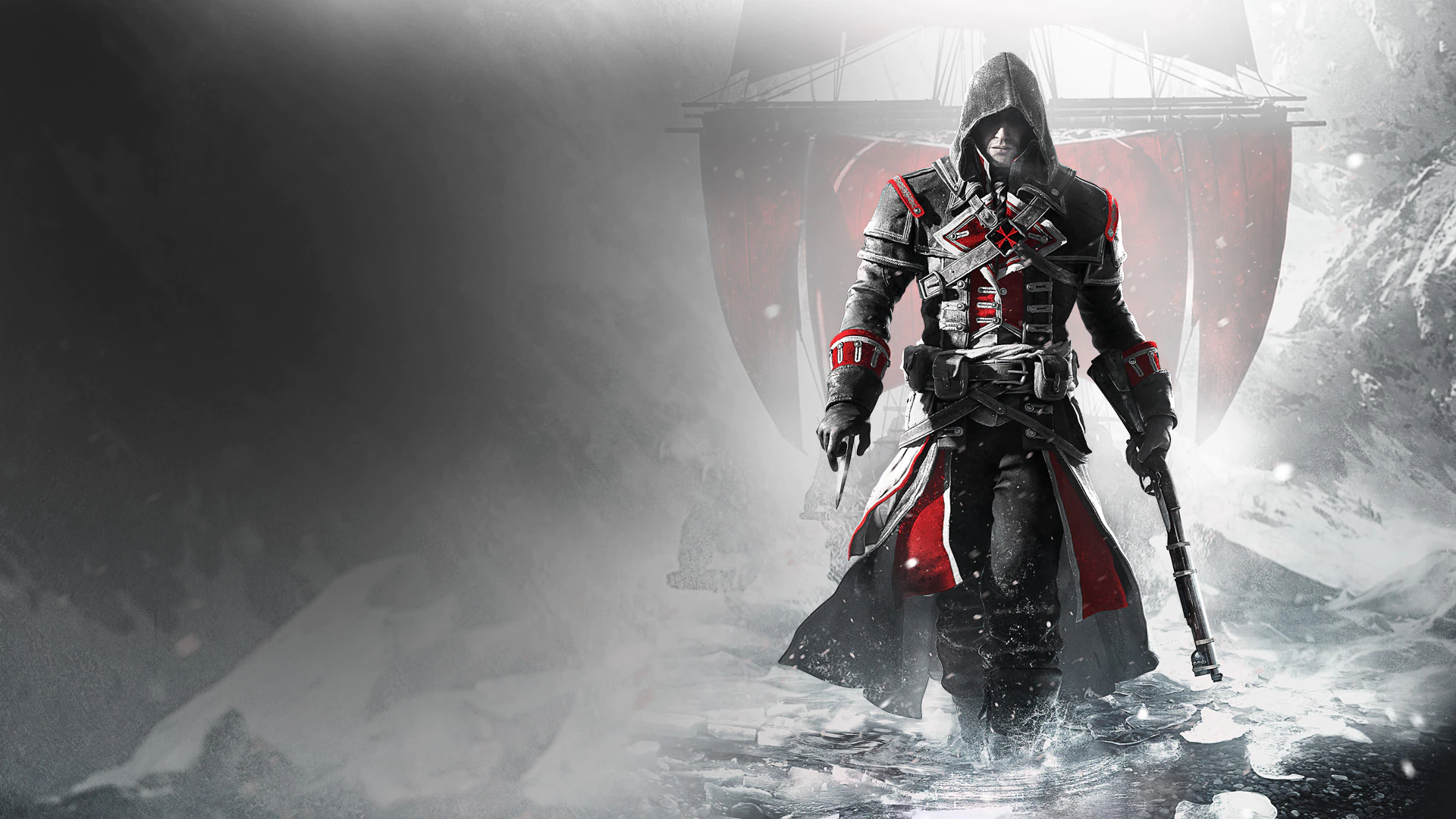
Platform(s): PC, PS4, PS3, Xbox One, Xbox 360, Switch
Sometimes, it’s good to be bad. Never a true mainline instalment, the seventh ‘major’ release in the Assassin’s Creed canon was always slightly limited by its shorter length and similarities to other games in the series.
Where Rogue excelled, however, was in just about feeling integral enough to warrant its own existence, tying together various narrative strands and interconnecting with other games in a pleasing, MCU-sort of a way. It also boasts one of the best character rosters in the entire franchise, the sympathetic and well-rounded Shay Cormac and the charismatic Templar Haytham Kenway giving Rogue a depth and dimension it would otherwise be sorely lacking.
Rogue is a pretty decent experience, but it relies on players knowing nothing else about the franchise or the context around which it was made in order for it to be enjoyable. Once you’re aware that it’s a game made as a concession to those unable to play Unity yet, and that it uses the same gameplay model as 2013’s far superior Black Flag, the shine is rather taken off your adventures with Assassin-turned-Templar Shay Cormac.
11. Assassin’s Creed Odyssey
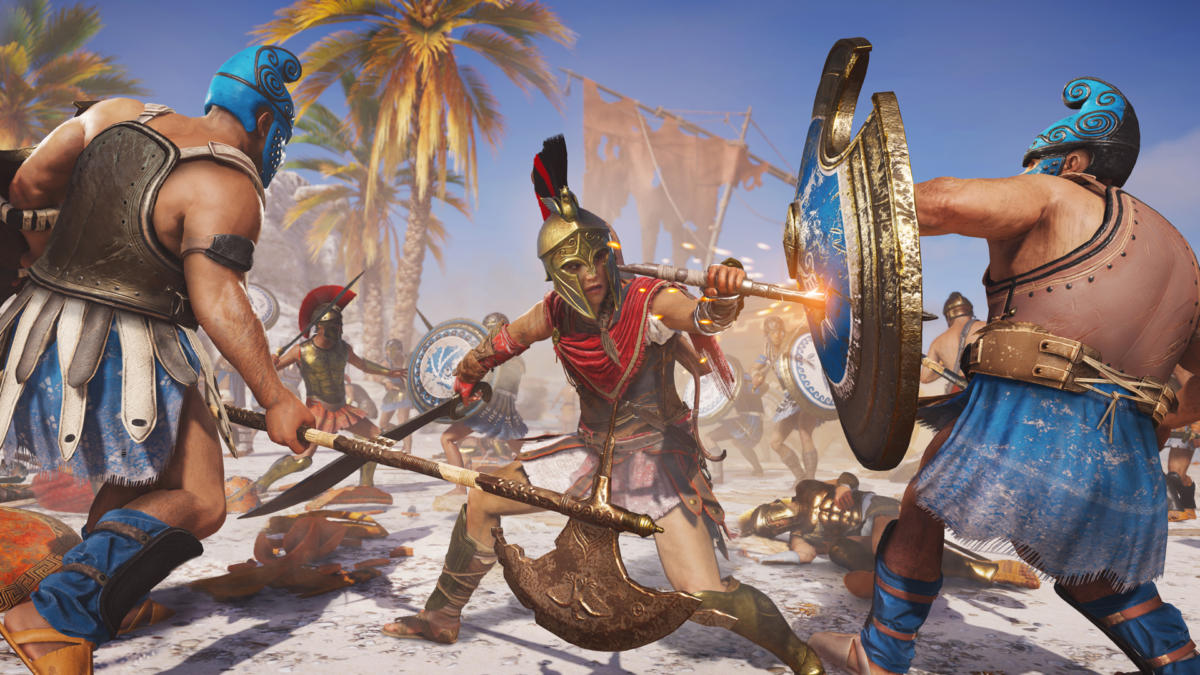
Platform(s): PC, PS4, Xbox One
For such a massive release, Odyssey finds itself pretty low down on this list. Yes, the game does a lot of things well: it’s got an enormous map, the graphics are sleek and smooth, while the ancient Greek world is beautifully realised as you navigate the political wranglings of the Peloponnesian War. As AAA games go, Odyssey is about as AAA as you can get.
Sadly for Odyssey, practically everything that the game has going in favour of it also ends up contributing to why it’s such an interminably frustrating release. The map may be huge, but that simply means longer travel times or else a reliance on fast travel, and while it’s nice to be able to explore sites all around Greece, few places ever feel intimate enough to call home.
The point is this: Odyssey is grindy. It’s thumb-breakingly, eyeball-shatteringly, mind-numbingly grindy, the sort of game where you can spend 80+ hours endlessly sailing and fighting and sailing and walking and climbing and sailing until the sun burns out and the universe implodes, performing the same retrieval side missions and mashing the same inputs as part of the game’s gruelling combat system. Odyssey may be big and beautiful, but it’s also often shallow, repetitive and incredibly frustrating.
10. Assassin’s Creed Unity
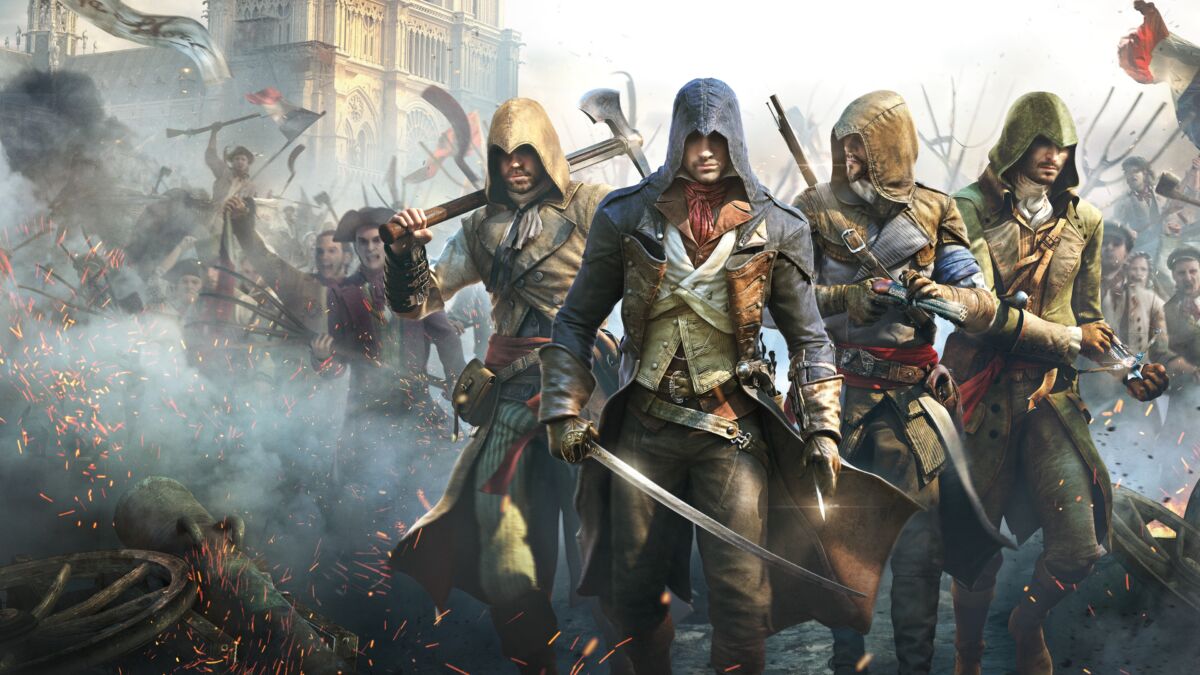
Platform(s): PC, PS4, Xbox One
Has there ever been a more misunderstood Assassin’s Creed game than poor old Unity? Debuting to a less-than-stellar reception, Assassin’s Creed Unity was so glitch-ridden that some players were left mashing their controllers trying to figure out whether a game existed at all beneath the endless crashes, errors and bugs.
Indeed there was, and once one of the biggest debugging campaigns this side of an annual exterminators convention had made Unity into something resembling an actual video game, the three players who hadn’t stormed off in disgust to play Dark Souls II instead discovered that hiding under the myriad of technical issues had in fact been a pretty decent Assassin’s Creed title after all.
Not a great one, of course, but a far better game than its initial tarnished reputation made it seem. With some lovely saber-clanking swordplay, a relatively diverting story (including a glorious opening sequence), and some neat tweaks and amendments to the usual formula, the most revolutionary (literally) chapter in the AC saga ended up being pretty good after all.
Plus, 18th Century Paris is actually very pretty, once you get past the guillotines, makeshift barricades and the decapitated heads on spikes, that is.
9. Assassin’s Creed Syndicate
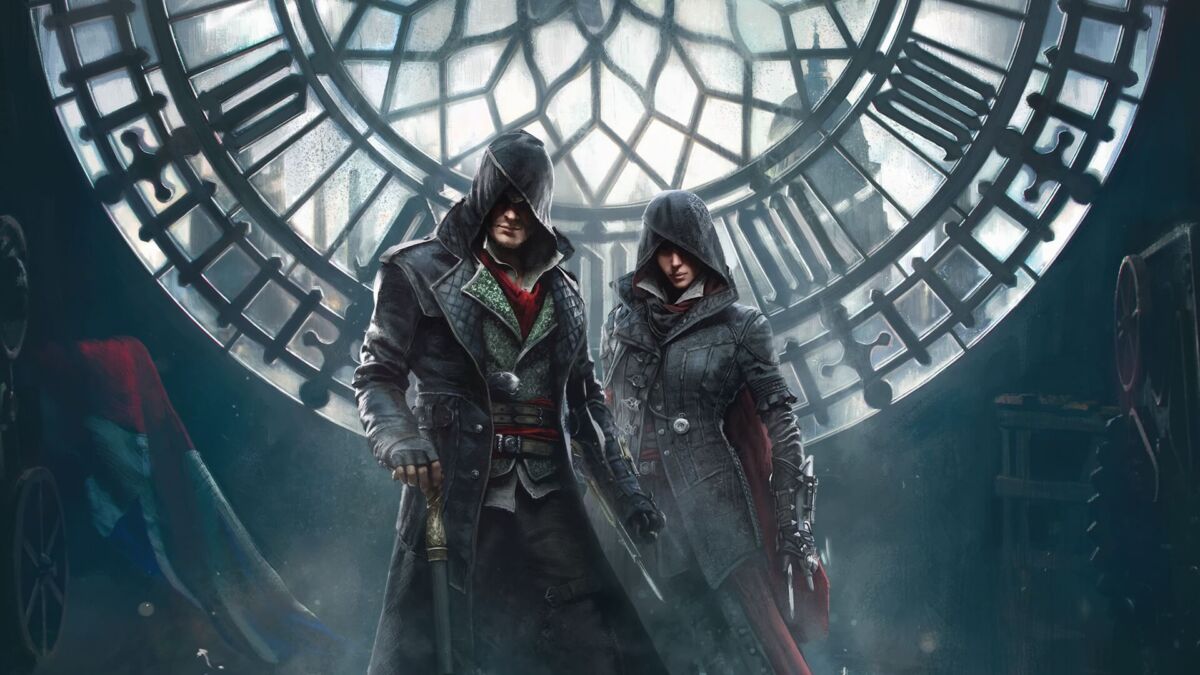
Platform(s): PC, PS4, Xbox One
Assassin’s Creed Syndicate could occupy pretty much any spot you care to mention on this list, because although the last game in the franchise’s ‘old mould’ does a lot immensely well, it’s also a title riddled with flaws, faults and frustrations. Beloved by some and hated by others, Syndicate is, like the Industrial society of its setting, a title divided.
On the plus side, industrial London is fantastic, and while the streets of Britain’s great capital might be familiar hunting grounds for most seasoned gamers, it’s never a chore being able to clamber up the side of Big Ben or hurl yourself into the murky waters of the stagnant Thames without fear of catching deadly typhoid.
On the other, the game’s protagonists are perhaps some of the weakest before or since, the Frye Twins an odd pairing who look more like a couple of Jack Wills models cosplaying as their favourite characters from Peaky Blinders than the sort of siblings who would gladly see a finger lopped off for the sake of a sacred and devoted cause. As a relic of how Assassin’s Creed used to be, though, Syndicate is worth a passing trip.
8. Assassin’s Creed III
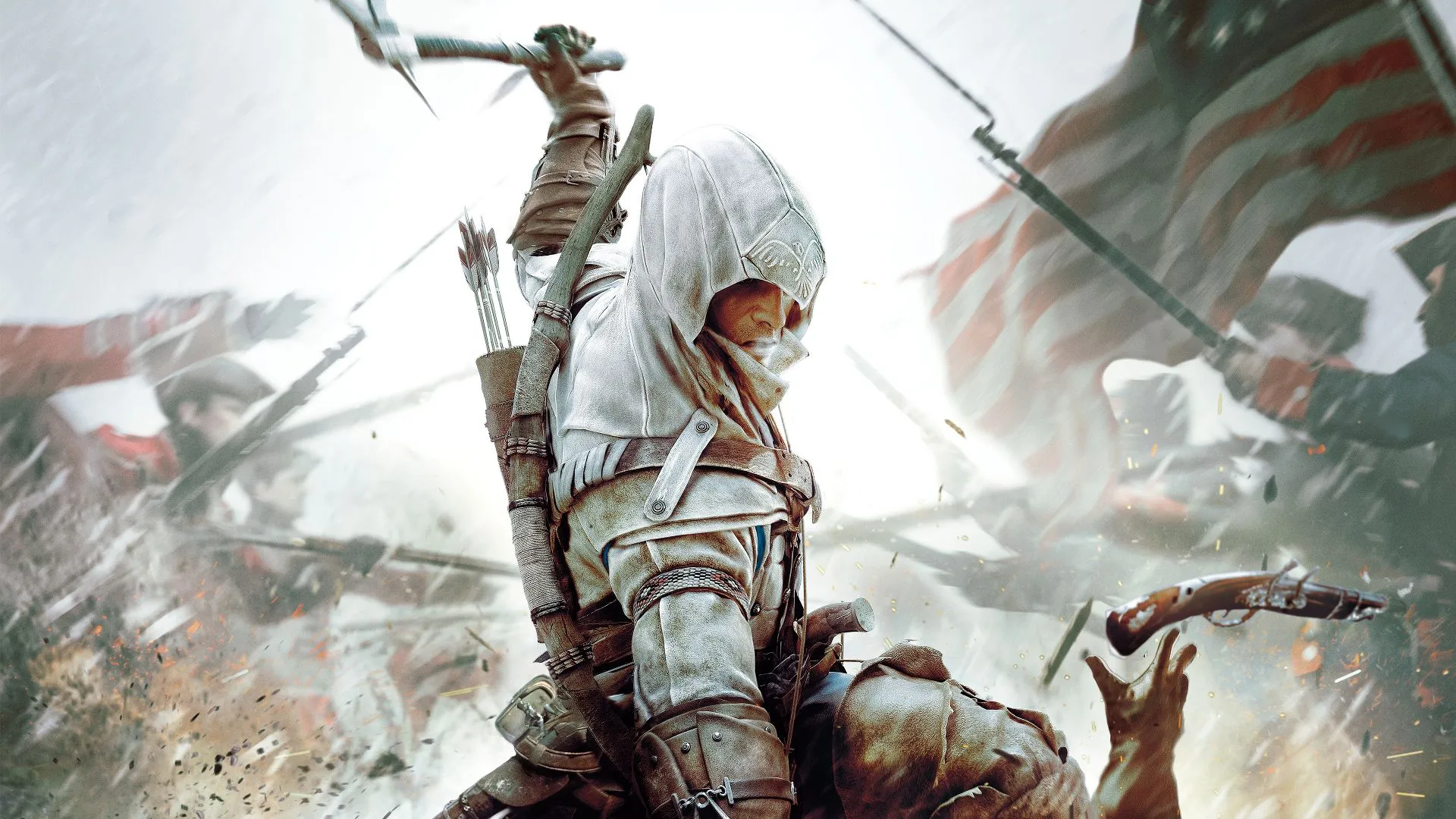
Platform(s): PC, PS4, PS3, Xbox One, Xbox 360, Switch, Wii U
You have to feel sorry for the poor old Brits. If they’re not being blown to pieces by rogue pirates or raided by dastardly axe-wielding Danes, they’re finding themselves freezing to death in snow-dusted forests being hacked to pieces by an angry man in a white hood who seems to be the 18th Century’s answer to Rambo crossed with a very angry lumberjack.
If ever there was an Assassin’s Creed protagonist you didn’t want to meet in a dark alley, it was AC III’s Connor, a one-man army of an Assassin with all the subtlety of a Sherman Tank and the charisma to match. Connor’s problem is that he’s the last AC protagonist you’d ever want to spend any extended period of time with anyway, a man so devoid of personality or interest it doesn’t take long before you’re praying that Ratonhnaké:ton would embed his tomahawk firmly in your skull so you don’t have to suffer his interminable presence any longer.
Perhaps that’s a little harsh, but with the standard set so high with series favourite Ezio Auditore, Connor was never quite able to fill the shoes of Florence’s favourite son, a problem only echoed by AC III’s inadequacies as a whole. While it’s by no means a bad game, even receiving a 2019 remaster, AC III felt inconsequential, sparse and bland in comparison to the games that had preceded it.
7. Assassin’s Creed
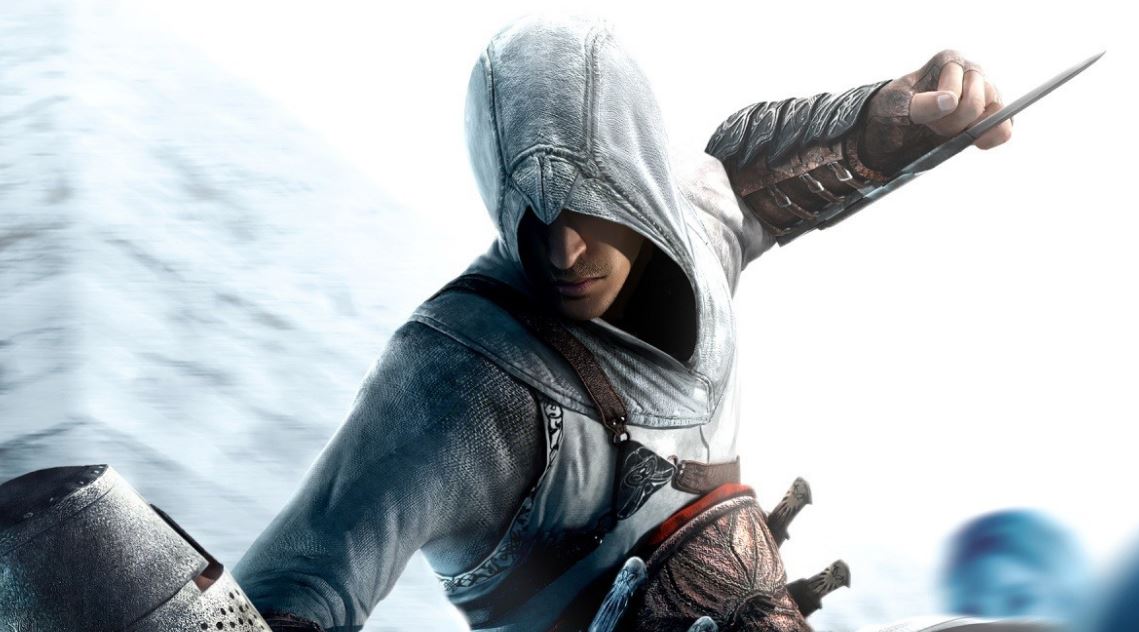
Platform(s): PC, PS3, Xbox 360
2007’s original Assassin’s Creed has since been buried under a mountain of games that have taken the series across continents and centuries, reimagined and reinvented but always bearing the name of the very first entry. AC II is credited for taking the franchise and making it sing, but practically every game has built on the foundations laid by the adventures of Altair and his cheerful gang of hooded, finger-deficient companions. Digging back through the annals of history reveals a game that deserves a lot more love and respect.
Assassin’s Creed introduced smooth free-running in an open world, effective stealth and the signature combat that wouldn’t be truly revamped until Origins more than ten years later. Combining all of these elements into a single title could have led to a hodgepodge of mismatched ideas, but Creed’s various elements coalesced to create something cohesive by ensuring each aspect complemented the other.
No, the first Assassin’s Creed isn’t the greatest in the series, but its middling reputation is unjustified. Not only did Assassin’s Creed spawn a gaming behemoth, but it also holds up well more than 15 years own the line, realising its world fantastically and evoking the feel and tone of the Holy Land in a way that’s immersive and authentic. The Assassin’s Creed series has taken players all over the globe, but the Holy Land is still one of the most evocative and faithfully-rendered locations of all time.
6. Assassin’s Creed Revelations
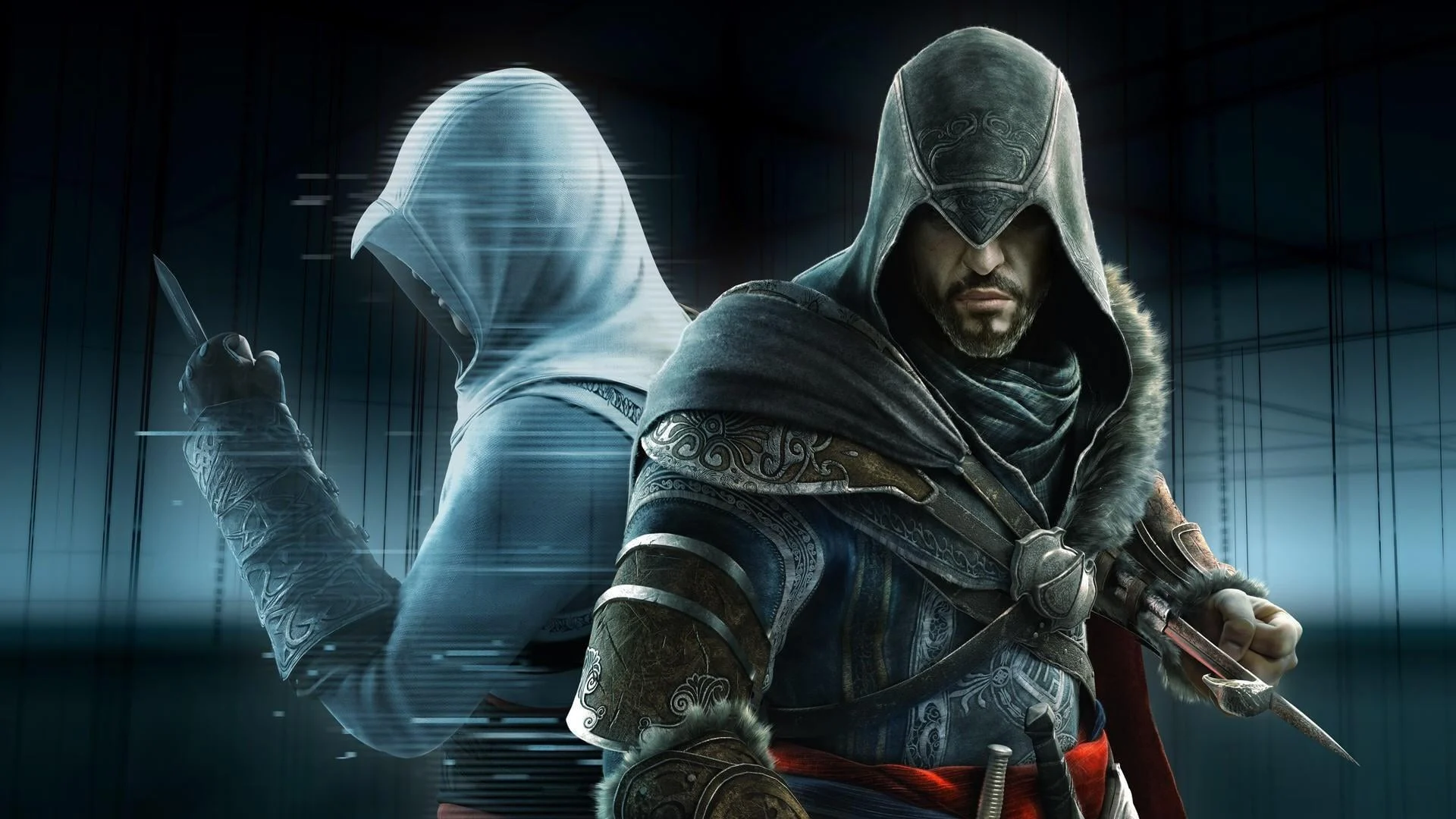
Platform(s): PC, PS4, PS3, Xbox One, Xbox 360, Switch
Revelations does a solid job in wrapping up the narrative strands laid down by the first AC game and both entries in the Ezio trilogy, feeling like the culmination of a story that had finally found closure.
The game’s ‘revelations’ were only slightly undermined by the fact that there would go on to be dozens more instalments that would also delight in delving further into the series’ convoluted and interminable lore, rendering Revelations’ name slightly redundant. Calling AC Revelations ‘Revelations’ is like calling Mount Snowdon ‘the biggest mountain in the world’ and then discovering Everest a few years later.
It’s a solid title nonetheless and a nice way to finish off Ezio’s story, even if the game sometimes loses its way by having too much reverence for its own source material to actually progress things as much as other titles had or would go on to. Revelations may have been revelatory, but it did little to be considered in any way revolutionary.
5. Assassin’s Creed Valhalla
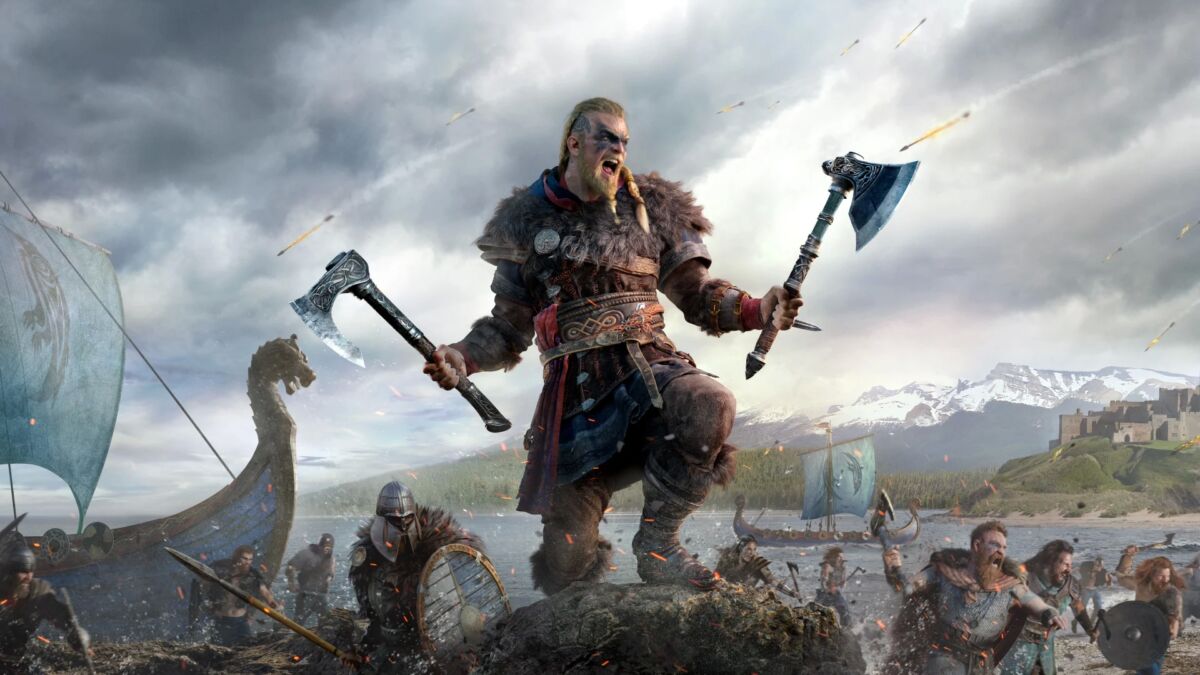
Platform(s): PC, PS5, PS4, Xbox Series X & S, Xbox One
If any there was any pretence that Assassin’s Creed had anything to do with either Assassins or their Creed, it was utterly abandoned by 2020’s Viking-themed release, the game’s only relevant concession to the series’ overall narrative reduced to a passing triviality. If the connection to the main Assassins storyline was becoming stretched by around the game’s fifth instalment, this connection wasn’t so much stretched as warped out of all recognition by the time Valhalla made its debut.
Yet it’s hard to be po-faced about Valhalla because it does so many things very well, despite being overlong, bloated and sometimes frustratingly repetitive. It’s different and novel enough to distinguish itself from its predecessors, but not so distinct as to be completely unfamiliar to fans of the franchise.
If Origins was the start of a new Assassin’s Creed generation, Valhalla is the series’ logical progression, its gorier, more rewarding combat combining with a sense of fun and spectacle to keep things fresh. Like Black Flag, Valhalla makes almost no claims to being a true AC game, and in this sense, it’s all the better for it.
4. Assassin’s Creed Origins
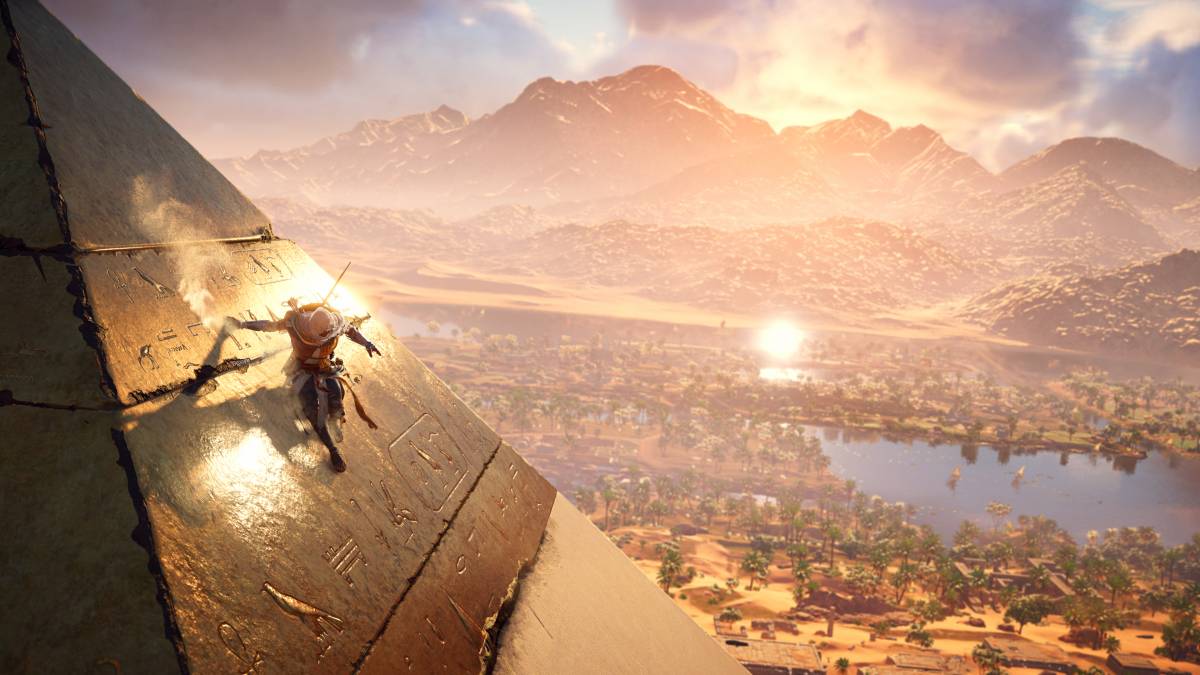
Platform(s): PC, PS4, Xbox One
By the time AC Syndicate had dropped in late 2015, there was an increasing feeling among the walls of Ubisoft that Assassin’s Creed was in danger of growing stale. Reception to Syndicate hadn’t been especially negative, but as one of the least heralded and worst-selling instalments in the series, fans were beginning to sense a waning in momentum as the franchise as a whole headed towards its ten-year anniversary. A change, it seemed, was needed.
And so it arrived in the form of the revolutionary Assassin’s Creed Origins, a divisive game at the time whose reputation seems only to have grown as the years have gone by. Set amid the gorgeous sands of Ptolemaic Egypt, Origins follows the likeable and very human Bayek of Siwa, a Medjay tracking down the order responsible for the death of his son.
For better or for worse, Origins changed the game for Ubisoft and in doing so, reimbued its flagship franchise with new life and a new sense of purpose. Not every change was heralded as for the best (the move to more RPG combat and loot mechanics certainly wasn’t to everyone’s taste), but Origins’ stunning visual presentation, refreshing story, looser feel and solid characters ensured the series’ rebirth was, ultimately, a profitable one.
For daring to be different, Origins deserves considerable acclaim.
3. Assassin’s Creed Brotherhood
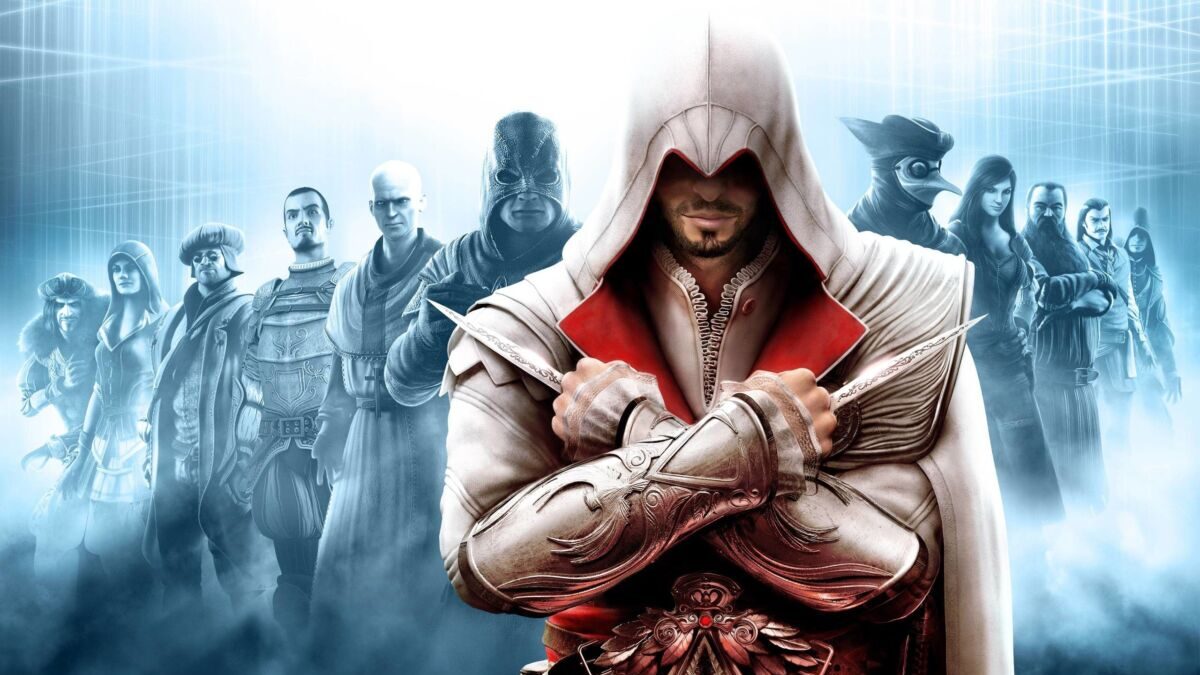
Platform(s): PC, PS4, PS3, Xbox One, Xbox 360, Switch
Brotherhood wasn’t met with ridiculous fanfare upon its release, but history shows it to be easily one of the most acclaimed Assassin’s Creed games ever made, up there with AC II in terms of adulation from critics and fans alike. With a Metacritic score of a whopping 90 for the PS3 version, Brotherhood deserves to be called Great with a capital G.
Improving on practically everything that the already outstanding Assassin’s Creed: II had managed, Assassin’s Creed: Brotherhood was Ubisoft working at the peak of its powers with a franchise that felt as though it was truly finding its feet. Exceptionally pretty, hugely entertaining and showcasing Ezio at his best and most developed iteration, Brotherhood still stands up as a game beloved of both critics and the series’ devoted fanbase.
What Ezio’s second outing excels at is refining an already exceptional recipe while adding enough new elements to make it its own distinct entity. The introduction of summonable Assassins to help out Ezio when his stabbing arm is getting tired is ironically one of the least innovative or important aspects of the 2010 release. The introduction of a revolutionary new multiplayer mode, however, plus a modified combat system and one of the best narrative arcs in the entire series, made Brotherhood a sure-fire winner.
2. Assassin’s Creed II
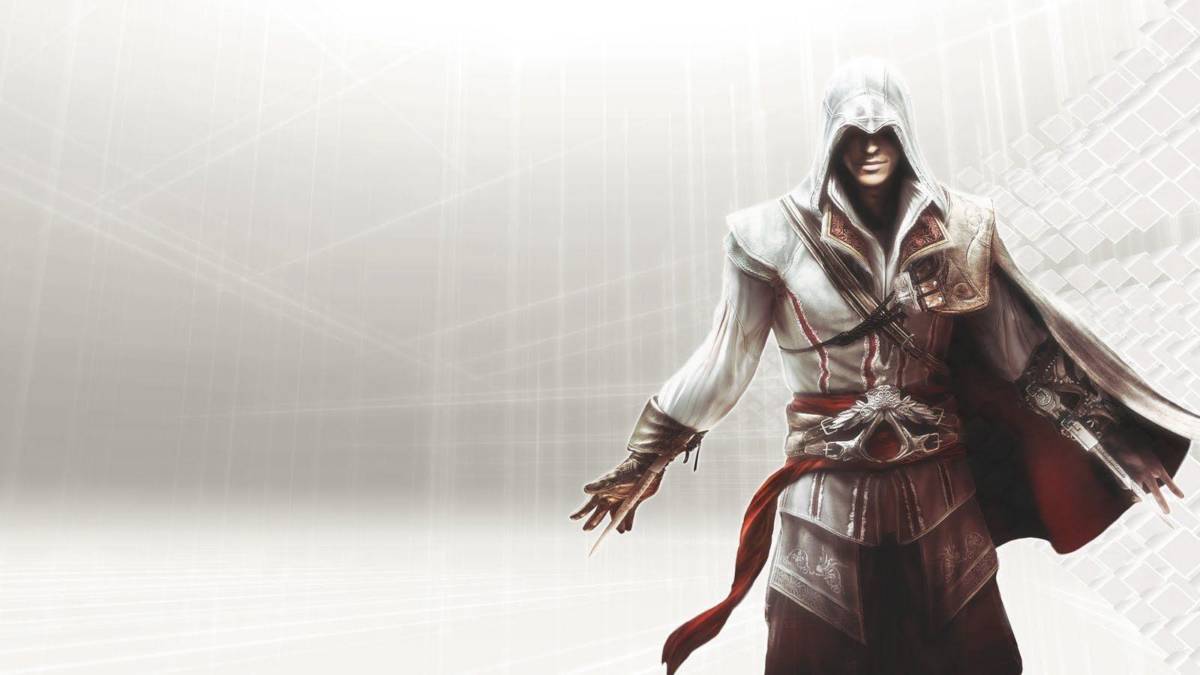
Platform(s): PC, PS4, PS3, Xbox One, Xbox 360, Switch
Second place in an Assassin’s Creed ranking for the second-ever Assassin’s Creed has a nice ring to it. That’s not the reason for its inclusion in the number two spot, of course, as Ubisoft’s sophomore effort is considered by many to be the best game the series ever produced and one of the finest video games of all time. Denying Assassin’s Creed II the top spot felt like breaking some sort of all-pervasive gaming taboo.
Whether or not AC II deserves to be number one is a debate to which there is no definitive solution. What isn’t up for questioning, however, is just how fantastic the sequel to the first title actually is.
What AC: II represents is a time when Ubisoft were clearly considering exactly how they could improve upon their games, listening to fan reception to Assassin’s Creed and rectifying practically every issue that undermined their debut effort. WIth fewer repetitive missions, a more likeable protagonist, more weapon variety and a new level of shine and polish, AC II propelled the franchise from a could-be hit to a sure-fire smash. Assassin’s Creed laid much of the groundwork, but it was Assassin’s Creed II that ensured the birth of a titan.
In fact, it’s no coincidence that the adventures of Ezio Auditore Di Firenze were the only narrative storylines to which the series would return again in subsequent mainline entries. Other characters might have enjoyed cameos or the occasional handheld spinoff, but Ezio’s Renaissance fables were recognised straight off the bat as the stories fans were desperate to see again and again. So many faces have been concealed by the iconic white hood, but none have ever been so beloved as everyone’s favourite Italian stallion.
1. Assassin’s Creed IV: Black Flag
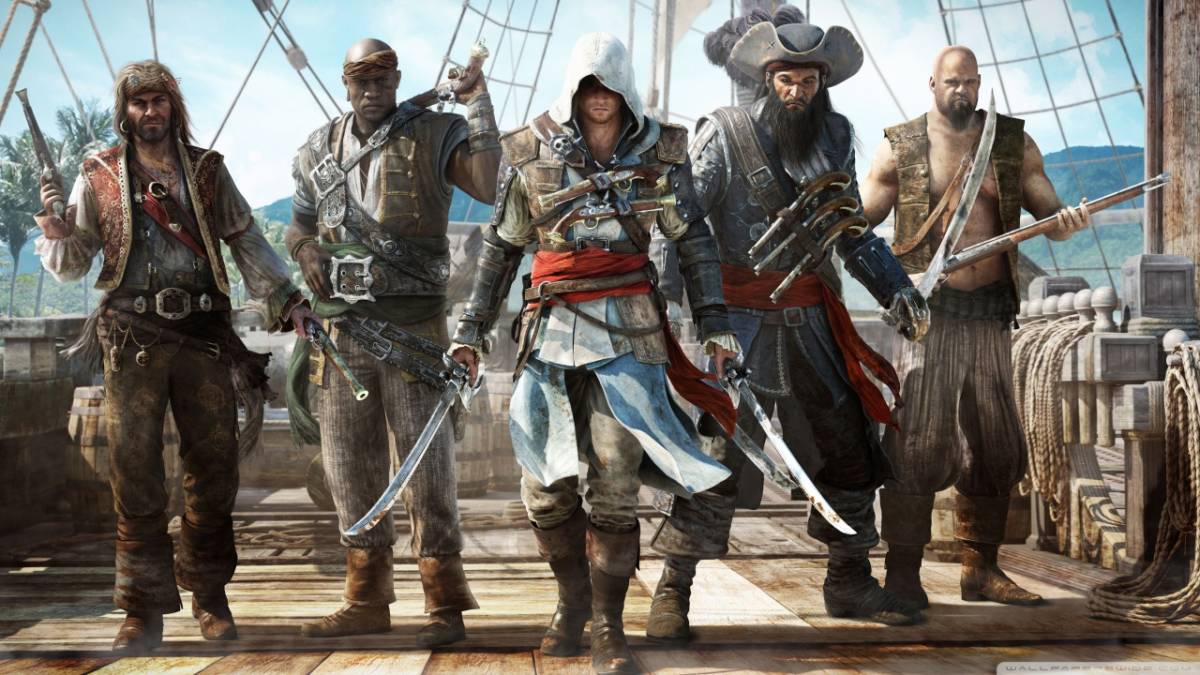
Platform(s): PC, PS4, PS3, Xbox One, Xbox 360, Switch, Wii U
We’ve arrived at number one, and the revelation that the finest Assassin’s Creed ever made isn’t really an Assassin’s Creed game at all, Black Flag trading in stealth and subterfuge for a rum-soaked tale of piratical adventure and raucously off-key sea shantying that still stands up as some of the most fun you can have in the AAA market.
Following the disappointing reception to AC: III, the series was starting to feel tired, weighed down by its own past and complex lore, trying to squeeze the Assassins or the Templars into various narratives while also crafting exciting and novel adventures in unexplored eras and epochs.
What Black Flag did, of course, was to jettison the series lore in favour of practically no concessions to the original story, focusing instead on Edward Kenway’s privateering adventures on the glistening Caribbean seas. Designed almost purely to elicit maximum player enjoyment from its gorgeous setting and colourful cast of vagabonds. Black Flag liberates itself from its past and forges its own path to gaming glory.
It’s not perfect, of course. Melee combat is a little too easy even by series standards, while any passing concessions to the overarching Assassins storyline do end up feeling utterly out of place in a game essentially designed to be a liberation from its own history. Yet the overall effect is utterly intoxicating, a heady blend of action, style and flair that sets sail at full speed and never lets its anchor scrape the ocean floor. Black Flag is undoubtedly the best Assassin’s Creed game of all time. Now give us a sequel.
READ NEXT: Ranking the Deus Ex Games From Worst To Best
Some of the coverage you find on Cultured Vultures contains affiliate links, which provide us with small commissions based on purchases made from visiting our site. We cover gaming news, movie reviews, wrestling and much more.


